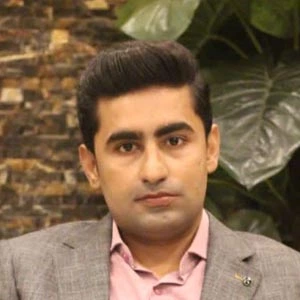Regional
PM terms introduction of mini-budget as effort to document economy
Government was making strenuous efforts to remove all hurdles and bottlenecks faced by exporters, investors and businessmen and to give a spur to the exports industry
Islamabad: Prime Minister (PM) Imran Khan on Tuesday termed the introduction of mini-budget as an effort to document the economy on Tuesday.
The prime minister said while addressing at an inaugural ceremony of 14th International Chambers Summit 2022 arranged by the Rawalpindi Chamber of Commerce and Industry (RCCI).
He also said that out of the total estimated Rs11 trillion retail market, only Rs3 trillion market was registered. He underlined that exports and tax collection were the two main driving agents to boost the country’s economy, over which the present government was fully focused.
He said the government was making strenuous efforts to remove all hurdles and bottlenecks faced by exporters, investors and businessmen and to give a spur to the exports industry.
The prime minister said that in the past, no attention was paid to these sectors of the economy which were vital for wealth creation. He observed that if the country’s exports were not increased, it could again put pressure on the current account and currency.
The prime minister said the government was constantly endeavouring to introduce incentives for ease of doing business and remove all bottlenecks which would help increase businessmen’s profits and develop a tax culture. The government was also working on full tax automation, he added.
No reserves to stem depreciation of rupee
“No government in Pakistan ever faced such big challenges like the fiscal and current account deficits. If our friends, Saudi Arabia and China would not have helped us, we would have defaulted due to our liabilities. We had no reserves to stem the depreciation of rupee,” PM Khan said.
Smart lockdown policy followed by British PM
He said the country’s economy was going through a stabilization phase, but unfortunately, then came the Covid 19 which posed the century’s biggest challenge.
It was worth appreciable how Pakistan was out of the woods. The government not only saved the economy but also the lives of the people, he said, adding, the pandemic brought havoc across the world. In India, its economy was badly impacted with a huge death toll.
The prime minister said that he was criticized by the political opponents for not clamping a complete lockdown. But their decision of smart lockdown was being followed by the British prime minister Boris Johnson. Then came the challenge of Afghanistan and the flight of dollars which put pressure on rupee, he further added.
The prime minister said the world also witnessed a record surge in commodity prices as the supply and demand lines were disrupted by the pandemic. The people all over the world had been facing problems, he added.
About commodity prices, the prime minister expressed the confidence that it would ease soon.
The prime minister further stressed upon developing a tax culture like the Scandinavian countries that have the highest tax ratio. He observed that tax culture could not evolve in the country as the people were reluctant to pay taxes in the past, due to lack of trust over rulers who spent the public tax money on their luxurious living.
He said the present government was making efforts to spend available resources on the poor segments of society.
Pakistan still cheaper country
The prime minister said Pakistan was still a cheaper country when compared with petroleum product prices in India and others in the region.
About state of Madina, the prime minister said it had brought the biggest revolution in the world, transforming the humble people as the leaders of the world. He also shared Allama Iqbal’s opinion that a Muslim society would always rise to prominence when it followed the model of Riyasat-e-Madina.
Corruption would assume role of cancer
The prime minister further said that rule of law in a society was critical as in its absence, corruption would assume the role of cancer.
“Corruption is a symptom of lack of rule of law in a society. Our fight is for the rule of law in Pakistan. It is a difficult one because of different cartels and mafias who did not want the rule of law,” he said terming it a ‘Jihad’ against these mafias to secure future of the country.
“In a banana republic, there are two sets of laws for the powerful and the weak,” he maintained.
The prime minister stressed that alongside him (Imran Khan), the society would have to carry out this struggle because it was connected with the economic prosperity. “Nations had been destroyed due to corruption and lack of rule of law,” he added.
